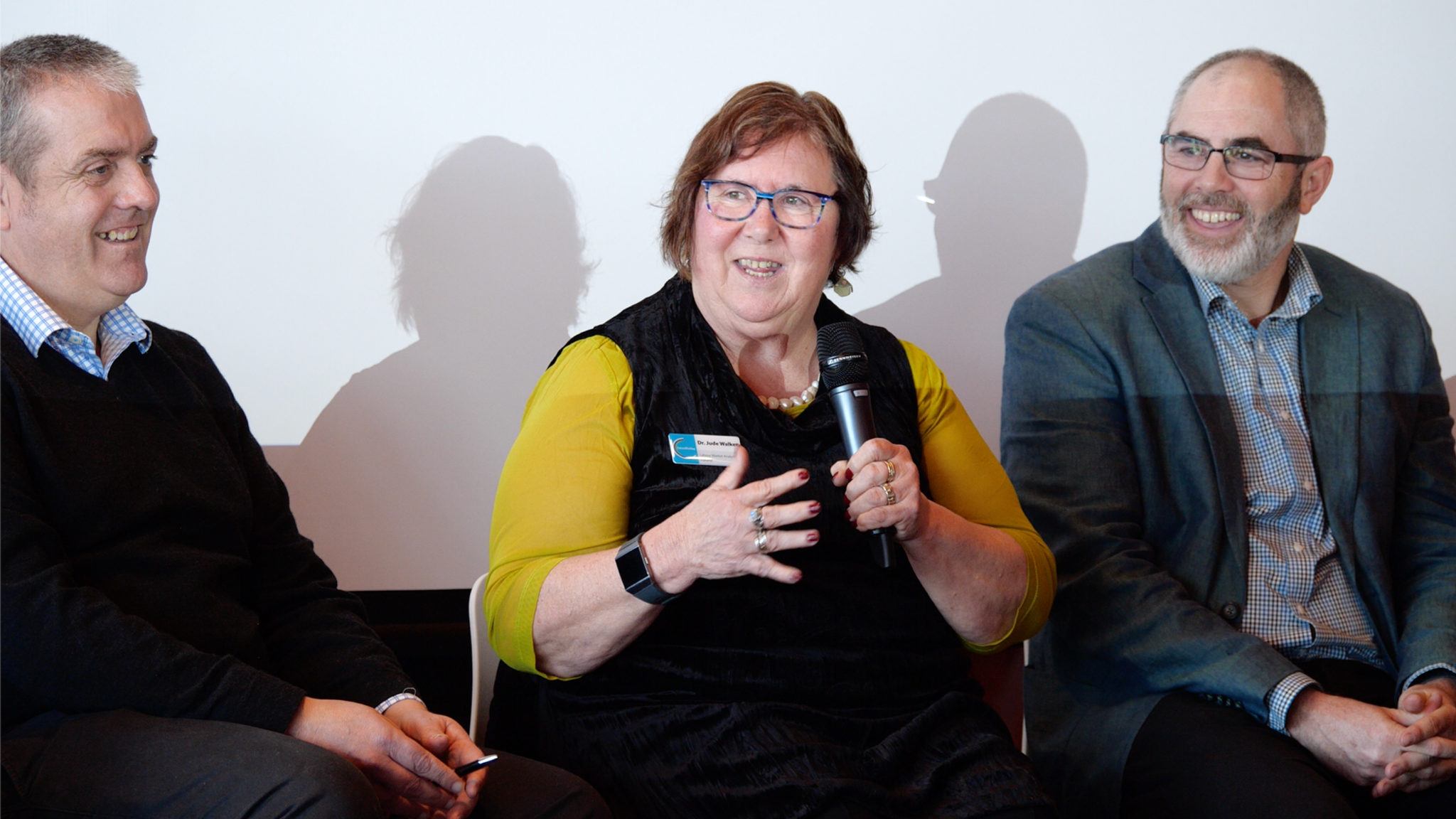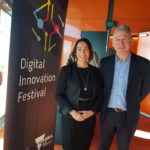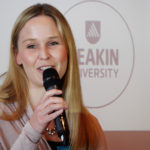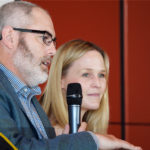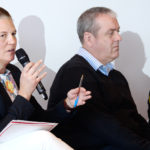There is no doubt a digital transformation is happening right in front of our eyes, but, is Geelong facing a Tech Talent Time-Bomb?
Recent Harvest HR Index employment trend data revealed that Technology IT&T / Business and Data Analysts was the ‘Top Discipline in Demand’ in our region from April to June 2019.
The HR Index also revealed that half of the region’s upcoming data and technology specialists will be hired by the Public Sector and as many of these organisations have change / transformation on their agenda, we are about to see substantial growth is in this area.
So, just where will all our tech experts come from now and into the future? Are organisations in sourcing or outsourcing tech projects? And, what further role can education play?
When invited to speak at the Digital Innovation Festival by Technology for Geelong, Harvest Talent Recruitment & People Solutions jumped at the opportunity to explore these questions further and determine if Geelong really was facing a ‘tech talent time-bomb’.
When asked whom in the room has been recruiting tech, most hands shot up and when asked who was finding it increasingly difficult to find talent, again most hands shot up.
To understand what’s happening with technology, Karl Morris, Managing Director, GOOP Digital, believes we need a brief history lesson and a quick revision of Moore’s Law from back in 1965. (Gordon Moore was the Intel CEO and cofounder of Fairchild Semiconductor).
Without going into too much technology ‘geek talk’, Karl essentially explains this means that processing power will double every two years and this prediction has proved true since 1965.
In other words, when it comes to technology, things are moving quickly – very quickly.
Where are the regions tech talent pools coming from?
DeakinTALENT’s Justine Frost acts as the all important link between recruiters and Deakin graduates.
According to Justine, Deakin Uni has strong student and graduate IT numbers. But, when you break it down, the results are interesting for our region.
In 2014, Deakin had 1,100 students enrolled in a Bachelor of IT. Roll onto 2019 and this number has almost doubled to 2,100 students enrolled.
Of this, 1,600 students are based in the Burwood campus, others study on the cloud, leaving 200 – 300 Bachelor of IT students studying (and presumably wishing to stay) in Geelong.
This raises the necessity that tech job candidates may need to come from outside the region. Promotion of Geelong’s lifestyle needs to top priority and jobs (and salaries) need to remain competitive to attract the best candidates.
Justine encourages employers to also consider International Students.
A recent Graduate outcome survey revealed 73% of national, (not just Deakin), IT graduates gain full-time employment within four months after graduation. Many employers are getting on the front foot and attracting candidates whilst they are still studying.
Taking another approach, Karl Morris says GOOP Digital often recruits IT candidates who are “self-taught”. With courses available through Udemy and Google Accreditation courses, if a person has taken the initiative to take these short courses, Karl is happy to speak with them.
Tech courses – skills training and development
“For courses to meet the demands of employers they cannot be rigid and ongoing learning is required. It’s also important for teachers to keep up to date,” says Dr Yasmin Chalmers, Head of Centre (Science and Technology), The Gordon
Dr Yasmin Chalmers agrees it is challenging to find qualified teachers to deliver IT accredited courses. For fee for service – short courses, industry based tutors can be used rather than qualified teachers, so it is not so much a problem.
“If you look at the kids of today, they USE technology. There’s a natural growth awareness and kids go to short ‘coding camps’ etc,” says Dr Jude Walker, Labour Market Analyst | Futurist, Geelong Region Local Learning and Employment Network Inc.
“It seems what we may need to do is look at the way courses are delivered.”
What are institutions doing to help students be ‘job ready’?
A mix of technical skills and soft skills is required. As with most disciplines, attitude goes a long way and a ‘self-starting’ individual is often the favoured candidate. ‘Learning on the job’ is widely perceived as the best way to prepare to work in digital environments.
We are seeing courses interfacing with readiness for work with education institutions providing real life industry projects, bringing learning and work together – off-campus.
Is in sourcing / outsourcing or going offshore an option?
When it comes to outsourcing roles and / or projects, there are obvious benefits but also some pitfalls.
Matthew Szymczak, Senior Lead – Smart City, COGG believes having a full ‘vested interest’ in a project is an issue when it comes to outsourcing.
If outsourcing, communication of standards is important and if taking business offshore, cultural interfaces also need to be established.
If you can ‘box’ the work and write good instructions then taking jobs / projects offshore may work. It takes good communication skills, time and sometimes just finding the right company / people to work with.
Dr Jude Walker, also believes “we need to re-think the way work is done in our new gig economy.”
Flexible working and working from home for lifestyle choices is becoming increasingly obvious in the Geelong region, particularly along the SurfCoast where it was recently revealed as a ‘hidden gem’ for at home workers. The SurfCoast Shire has taken the initiative to capture these businesses in a database which may well reveal a number of high level consultants already based in our region.
What does the future look like?
When we opened to the floor for questions, even more issues were raised.
It’s now not only the pay gap between Geelong and Melbourne that competes for IT candidates but also the larger organisations in Geelong, particularly in the public sector, competing with smaller business. It’s apparent that small businesses can simply not afford the salaries the larger organisations are offering IT candidates.
Ultimately, one of the biggest conundrums is, how does the education sector train graduates for jobs they don’t even know exist yet?
Deakin Uni has produced a “100 jobs for the future” report with some of the jobs seeming to represent ‘science fiction’. But, the fact is in a few years jobs such as Cyborg Psychologist and Space Tourism Operator will be a reality.
You can read the full report here.
Looking to future jobs, Dr Jude Walker explained that people who have the skills to visualise data and present and interpret it in a way people can understand is going to be a handy skill to have. If you are looking to move into IT, Dr Walker recommends doing your research.
Dr Yasmin Chalmers has provided an additional reading reference – an interesting National Survey report by Swinburne University on ‘Peak human potential: preparing workers for the digital future.’ The report reveals that 56% of workers expect that “work in five years will require skills they currently lack.”
You can read the full report here.
In conclusion, as per Morse’s law, technology is moving quickly.
It remains a challenge for the education sector to keep up with the skills required and employers may well demand more ‘micro-credentials’ from candidates.
Tech talent is hard to come by and outsourcing is ‘average at best’.
The Geelong region may not be a ticking time bomb, but we do have challenges.
But what we do know, is people will be able to find or create exciting work opportunities now and into the future.
Thanks to our expert panel:
Dr Jude Walker, Labour Market Analyst | Futurist, Geelong Region Local Learning and Employment Network Inc.
Justine Frost, Senior Graduate Recruitment Consultant, DeakinTALENT, Deakin University
Dr Yasmin Chalmers, Head of Centre (Science and Technology), The Gordon
Karl Morris, Managing Director, GOOP Digital
Matthew Szymczak, Senior Lead – Smart City, COGG
The panel was facilitated by Maree Herath, Director, Harvest Talent Recruitment & People Solutions
More about the Digital Innovation Festival
The Digital Innovation Festival, an initiative of the State Government of Victoria is celebrated throughout Victoria and demonstrates and promotes technology innovation across every sector of the economy and society. To find out more visit www.dif.vic.gov.au
*A video of the Tech Talent Debate will be available shortly.
